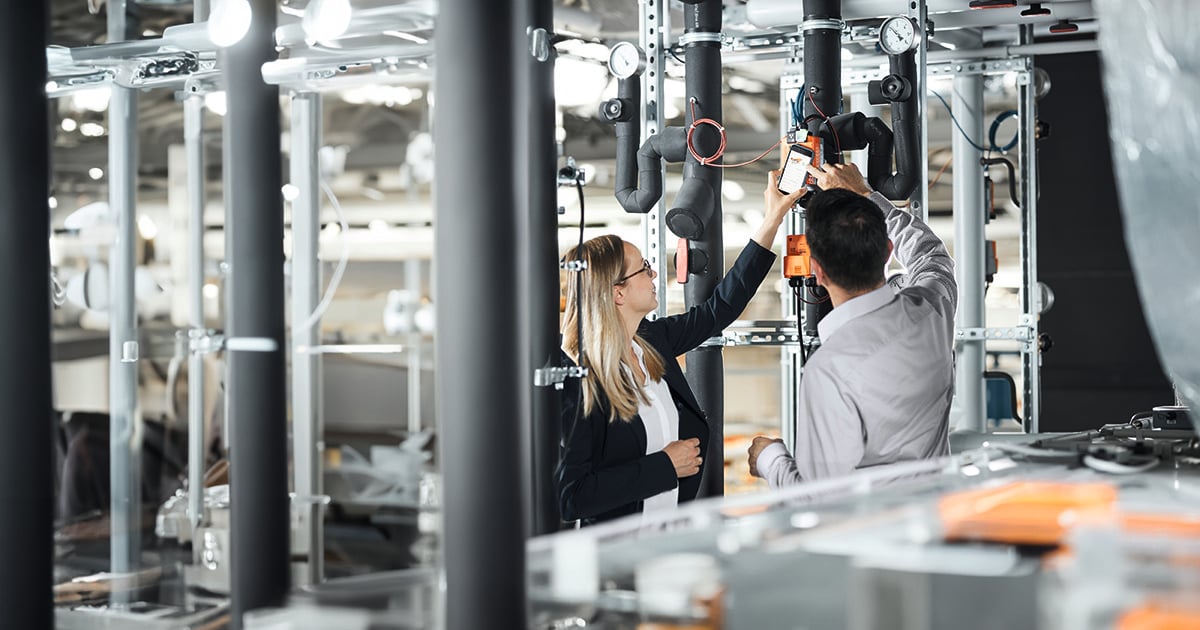Enhance Indoor Air Quality and Maximize Energy Efficiency with Belimo RetroFIT+
In an era where global efforts are fervently pushing towards energy efficiency and sustainability, the call to modernize building systems has never been louder. Existing buildings, each with their own design and operational challenges, have substantial opportunities to save energy, improve air quality, reduce carbon emissions, and enhance occupant comfort through targeted retrofitting.
But retrofitting doesn't just mean improved energy efficiency and IAQ – it can also translate into monetary savings on energy costs for buildings. And, thanks to the growing number of incentives tied to reducing energy consumption, retrofit projects in commercial real estate and public facilities are more feasible than ever. This makes retrofitting both environmentally and economically strategic.
At Belimo, our decades of experience in the HVAC industry have equipped us with the knowledge and expertise to help you optimize your current system for better performance. We developed RetroFIT+ to help customers learn how to apply our energy optimizing technology to their existing HVAC systems. RetroFIT+ offers a complete approach to upgrading your building, whether you're looking for an incremental improvement, a full overhaul, or something in between.
Building managers often worry about a retrofit being a nuisance to tenants, but this is a popular misconception. Most retrofits can be done without inconveniencing building occupants. Once your HVAC system has been retrofitted, control over the building’s IAQ and overall comfort will improve substantially and noticeably.
A key principle of RetroFIT+ is the emphasis on pressure independent system designs that do not require manual rebalancing. Many legacy HVAC systems were built to be pressure dependent, relying on periodic recommissioning to manually rebalance the hydronic system to keep it running efficiently. While recommissioning a pressure dependent system can improve efficiency in the short term, these systems are not capable of maintaining a balanced load.
Conversely, pressure independent hydronic systems maintain a balanced load regardless of pressure fluctuations. Pressure independence is achieved by using specifically designed pressure independent valves, which can be either mechanical or electronic.
Mechanical pressure-independent valves combine a differential pressure regulator with a 2-way control valve, ensuring a specific flow at each ball opening level, regardless of system pressure changes. On the other hand, electronic PI valves incorporate a flow sensor and a sophisticated control algorithm along with a control valve. This combined mechanism adjusts the valve according to the measured flow, maintaining a constant flow setpoint even if the system pressure changes.
While both mechanical and electronic pressure independent valves do a great job at maintaining consistent flow, electronic PI valves offer real-time hydronic transparency, allowing you to verify that the system is working as designed.
For example, the Belimo Energy Valve™ is an IoT-enabled, electronic pressure independent valve that measures and manages coil energy using an embedded ultrasonic flow meter, along with supply and return water temperature sensors. The Energy Valve comes equipped with a suite of cloud-based services that can be used to benchmark coil performance, analyze glycol concentration, store energy data, send alerts and commission for optimal performance. In addition to the standard analog signal and feedback wiring, the Energy Valve communicates with the Building Management System (BMS) via BACnet MS/TP or BACnet/IP as well as Modbus RTU and Modbus TCP/IP. The device has a built-in web server that stores up to 13 months of data. This data can be downloaded to external tools for further optimization.
In addition to monitoring the efficiency of your hydronic system, it’s crucial to consistently monitor the air quality in your building and with a high degree of accuracy. Research has shown that elevated levels of CO2 in buildings and schools can cause headaches, fatigue, and decreased cognitive function for occupants. Moreover, ASHRAE has recently approved Standard 241 to lower disease transmission in indoor spaces. This augments ANSI/ASHRAE Standards 62.1 and 62.2, which are the current recognized standards for ventilation system design and acceptable indoor air quality.
Sensors are used to monitor indoor CO2 concentration, an important metric for assessing ventilation and occupancy in relation to indoor air quality (IAQ). Elevated CO2 levels can indicate that more fresh air exchange is needed to maintain a healthy indoor environment.
Belimo room sensors provide real-time air quality monitoring with an intuitive CO2 LED traffic light system, making it easy to verify that the room environment is healthy and comfortable. Featuring built-in auto-calibration and altitude compensation for both active and passive models, Belimo room sensors deliver reliable, accurate CO2 readings without the need for manual tuning.

See Belimo’s Seven Essentials of Healthy Indoor Air for more information on how to improve the IAQ in your building.
Belimo RetroFIT+ Tools
Belimo RetroFIT+ offers several tools to help you get started retrofitting your HVAC system. The Belimo RetroFIT+ App for iOS and Android and the browser accessible RetroFIT+ Product Replacement Tool help you find suitable replacement products by category and product parameters. Both tools have OCR (Optical Character Recognition) which allows you to use your camera to scan and find the right replacement product for your existing equipment.

Another excellent way to determine the potential for energy optimization in your building is by using the Belimo HVAC Checklist. This simple questionnaire is a great way for you to get started on your RetroFIT+ journey, and it only takes 3 minutes to complete.
If you don’t find what you’re looking for right away, keep in mind that Belimo also offers customized retrofit solutions. These solutions are tailor-made to the unique needs of your application.
Are you looking for HVAC training? Belimo offers unlimited access to a library of high-quality, current, and engaging HVAC video tutorials from industry experts.


